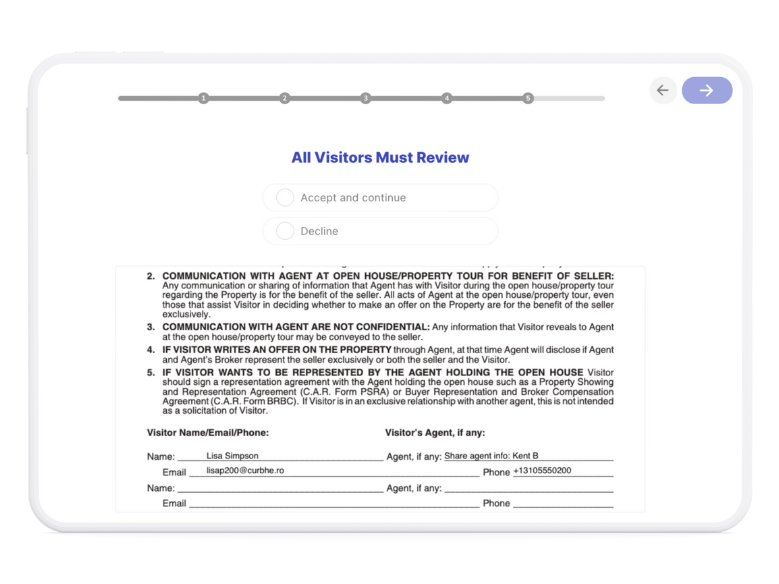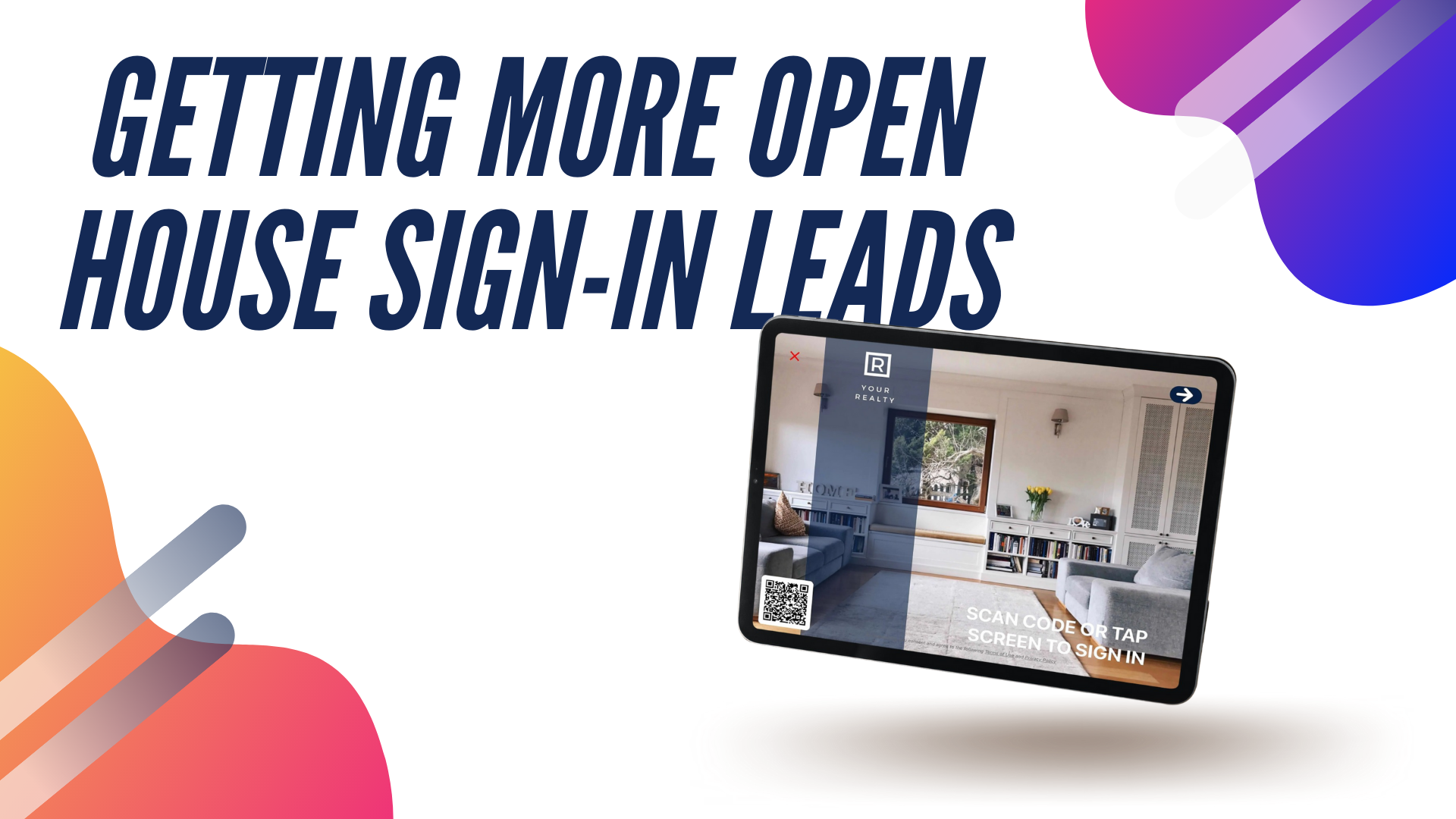What is first substantive contact in real estate?
Depending on your region, understanding when “first substantive contact” occurs is crucial for maintaining compliance with agency disclosure laws. But first…let’s define the phrase:
What is “first substantive contact” in real estate?
This occurs when the interaction moves beyond casual or introductory conversation and begins to involve discussions about property, motivation, finances, or other significant topics that could affect decision-making.
The symbolism of this moment, is that in certain states, the agent may be required to provide transparency to the prospect regarding agency (ex: whom the agent represents) in order to protect both parties’ interests.
What’s the difference between first contact vs first substantive contact?
“First contact” involves any initial interaction, while “first substantive contact” refers to the point at which the discussion touches on the property, person’s motivation, finances, or other significant topics that could affect decision-making.
What states require disclosures at first contact and first substantive contact?
The requirements for agency disclosures that are required at first contact vary by state but this breakdown should help quickly find the right disclosure for your state.
First Contact States:
- Maryland: Understanding Whom Real Estate Agents Represent
- Oregon: Initial Agency Disclosure Pamphlet
- Texas: Information About Brokerage Services
First Substantive Contact States:
- Minnesota: Agency Relationships in Real Estate Transactions
- New York: Disclosure Form for Buyer and Seller
- North Carolina: Working with Real Estate Agents
- South Carolina: Disclosure of Real Estate Brokerage Relationships
First Business Meeting States:
- Arizona: Real Estate Agency Disclosure and Election
- Connecticut: Real Estate Agency Disclosure Notice
- Mississippi: Working with a Real Estate Broker
- Massachusetts: Massachusetts Mandatory Licensee-Consumer Relationship Disclosure
- New Hampshire: Agency Disclosure Form
Most other states require an agency disclosure at later parts of the relationship and/or transaction. See further below for a full list of states and the timing of first written agency disclosures.
Types of Agency Disclosures by State
Depending on the state, the agent may have to provide an agency disclosure form either in paper or digital form. We’ve got many examples of these forms in our post on Open House disclosures.
States like New York have a specific, legally mandated form that agents must present at this stage, clearly outlining the different types of agency relationships available. It’s an opportunity to explain to clients the roles and responsibilities linked to each option, whether the agent will act as a buyer’s agent, seller’s agent, or even as a dual agent representing both parties.
These forms need to be acknowledged somehow by the recipient. Many of these forms have a signature field that a prospect can sign to acknowledge they’ve received the disclosure BUT that’s not the only method.
By sharing the disclosure digitally using an app like Curb Hero, you can get a digital acknowledgement of these forms AND even get a downloadable digital version of the prospect’s filled out disclosure saved (and sync’ed with your CRM or document management solutions) for later reference.

If you haven’t tried Curb Hero yet, it’s a great solution for Open Houses and other real estate marketing.
(note if you don’t see your state or brokerages disclosures available on our platform you can request new disclosures here)
There are other ways that many of states have recommended to collect acknowledgement that these disclosures have been received is to put the disclosure in the footer of an email to the prospect.
Though many of the legal departments for these states suggest that sending the email with the disclosure in the footer isn’t enough. An email reply from the prospect is what really counts as the acknowledgement.
That said, there are many interpretations so it’s best to check with your brokerage if unclear about this.
Agency Roles and Responsibilities that need to be explained at first substantive contact
Once an agent has identified the first substantive contact with a potential client, the next step is to clarify the specific agency relationship and associated responsibilities. Whether the agent is representing the buyer, seller, or both parties as a dual agent, it’s essential to explain the duties expected within each role. These key duties include confidentiality, loyalty, and fiduciary responsibility. By providing a clear description of these roles upfront, the agent helps the client understand the nature of their relationship and how the agent will act in the client’s best interests throughout the transaction.
For example, a listing agent at an Open House, is tasked with maximizing the seller’s return while also keeping confidential any sensitive information that could affect the seller’s position.
Timing of First Written Agency Disclosure Required By State
| State | Disclosure Requirement |
| AL | As soon as is reasonably possible |
| AK | When agent begins to provide specific assistance |
| AZ | At the initial consultation meeting |
| AR | Before signing of sale contract |
| CA | Before entering listing agreement (listing agent); before entering an offer to purchase (buying agent) |
| CO | Before offering or negotiating to sell or buy |
| CT | At beginning of first personal meeting (buying agent) |
| DE | Earlier of first appointment, showing of property, or offer |
| DC | Before providing specific real estate assistance |
| FL | For transaction brokerage, if shift from single agent; earlier of listing or rep agreement or property showing for single agent |
| GA | At time of agreement with agent |
| HI | Before sales contract presented |
| ID | First substantial business contact |
| IL | Initial contact with consumer |
| IN | Before receiving confidential information |
| IA | When agent provides specific assistance to the client |
| KY | When drafting or presenting an offer |
| KS | At first practical opportunity |
| LA | When substantive contact is made |
| ME | When there is a substantive communication |
| MD | Upon first contact |
| MA | At first personal meeting to discuss property |
| MI | Before disclosure of confidential information |
| MS | At first meeting with prospective client |
| MT | When listing agreement executed (seller agent); when negotiations commence (subagent); when broker agreement executed (buyer agent) |
| MO | No later than first contact or first showing of property |
| NH | At first business meeting |
| MN | At first substantive contact |
| NE | At earliest practicable opportunity or following first substantive contact |
| NV | When an agency relationship is established |
| NJ | Before consumer discusses motivation or desired sale price |
| NM | Before agent presents any written agreement |
| NY | At first substantive contact and before agreement |
| NC | At first substantive contact |
| ND | At first substantive contact |
| OH | Before showing property (listing agent); before discussing offer, financial info, other (buyer agent) |
| OK | Before sales agreement |
| OR | On first contact |
| PA | At initial interview (oral if not in person with written form later) |
| RI | Earlier of first personal contact or purchase offer |
| SC | At first substantive contact |
| SD | Before agent discusses consumer’s confidential objectives |
| TN | Before preparation of offer (buyer agent); before execution of listing agreement (listing agent) |
| TX | At first contact (orally or in writing) |
| UT | In written agreement for brokerage services |
| VT | At first reasonable opportunity and before discussing confidential info |
| VA | Before specific real estate assistance is provided |
| WA | Before signing an agreement with broker |
| WV | Before signing contract for representation |
| WI | Before providing brokerage services |
| WY | Before discussion involving sale |
In conclusion, understanding the concept of first substantive contact and its varying disclosure requirements across different states is essential for real estate agents to maintain compliance and foster trust with clients. While some states mandate disclosure at the very first contact or meeting, others align it with more in-depth interactions or specific agreements. These regulations ensure transparency and protect both parties by clarifying agency relationships before confidential or significant information is exchanged. By adhering to these guidelines and clearly communicating agency roles at appropriate points, agents can enhance professionalism, prevent misunderstandings, and create a foundation of trust and informed decision-making with their clients.



